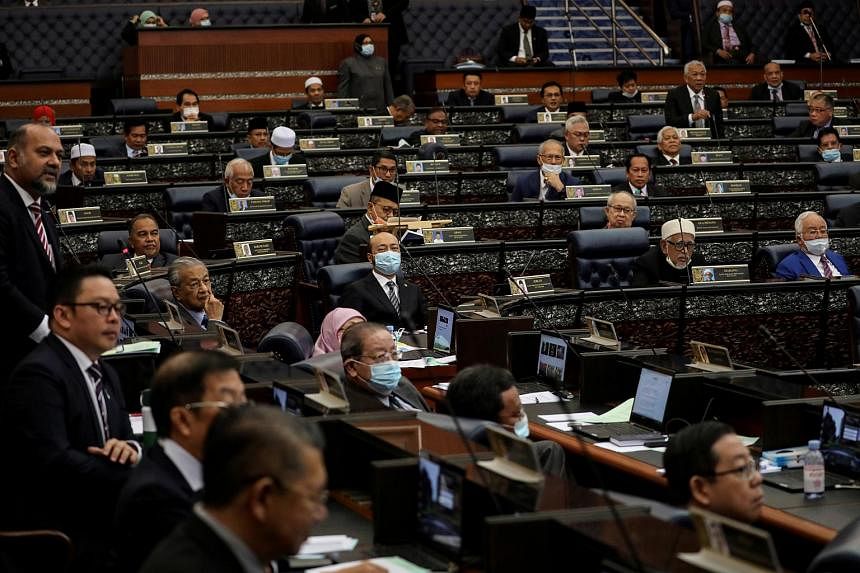KUALA LUMPUR - Malaysia’s lawmakers on Thursday (July 28) unanimously passed a landmark Bill to curb party hopping, more than two years after defections collapsed the Pakatan Harapan (PH) federal government and set off a period of political instability.
All 209 MPs present in Parliament voted in favour of the Bill that introduced several amendments to the Constitution, which will trigger a recall election or by-election every time an MP quits or switches political party.
MPs elected as independents will also lose their seats should they formally join any party under the new legislation.
Collectively known as the Anti-Hopping Law (AHL), the new constitutional rules are now expected to be passed by the Senate. They could be gazetted as early as September, putting them in force before Malaysia faces its next general election, which must be held by September next year.
Constitutional amendments need two-thirds majority to pass in Parliament. All 209 MPs present voted in favour of the Bill. Eleven MPs were absent and two seats are currently vacant in the 222-seat Parliament.
Prime Minister Ismail Sabri Yaakob praised MPs for unanimously voting for the Bill. “This law is to ensure continuous and lasting political stability,” he said in a statement.
The passage of the Bill comes just days before a key clause in the confidence-and-supply agreement (CSA) between Datuk Seri Ismail's government and the PH opposition bloc expires on Sunday.
The AHL is a key condition of the deal, under which PH agreed to back key legislations and supply Bills to prop up Mr Ismail’s single-digit majority government.
A key clause in the agreement states that Mr Ismail can't dissolve Parliament before July 31. But both parties have said that the expiry of the clause does not necessarily mean an immediate dissolution, as the CSA itself does not have an expiry date.
The Prime Minister said on Wednesday that more landmark reforms and legislations are still due under the CSA, and that work is continuing despite there being no formal extension of the timeframe.
The AHL, first mooted nearly a year ago, had faced several stumbling blocks. It was initially tabled in April, but a vote was deferred after MPs voiced concerns over some broad wording which they feared could lead to constitutional provisions being used to restrict the freedom of MPs beyond party-hopping.
The Bill later went to a bipartisan Parliamentary Special Select Committee, which spent over two months refining it.
As the committee sought a broad buy-in from all the parties in Malaysia’s fragmented political landscape, there were key exceptions made. MPs who are fired from their parties will not need to vacate their seats. En bloc defections by a party - like that of Parti Pribumi Bersatu Malaysia whose departure from the PH government had led to its collapse - are also not covered under the new law.
Dr Jeniri Amir, a senior fellow at the Malaysian Council of Professors, said that despite its loopholes, the Bill was a major step forward to avert any future political crisis.
“There is no law without loopholes, and this can always be amended in the future. The important thing is to stop talking about the political crisis, and focus on the economy instead,” he said.
The need for an anti-party hopping law came into focus following the series of defections at both federal and state levels since 2020.
Besides the collapse of the PH government in 2020, defections have also caused a change of government in Kedah, Perak and Johor, and triggered state-level elections in Sabah and Melaka.


